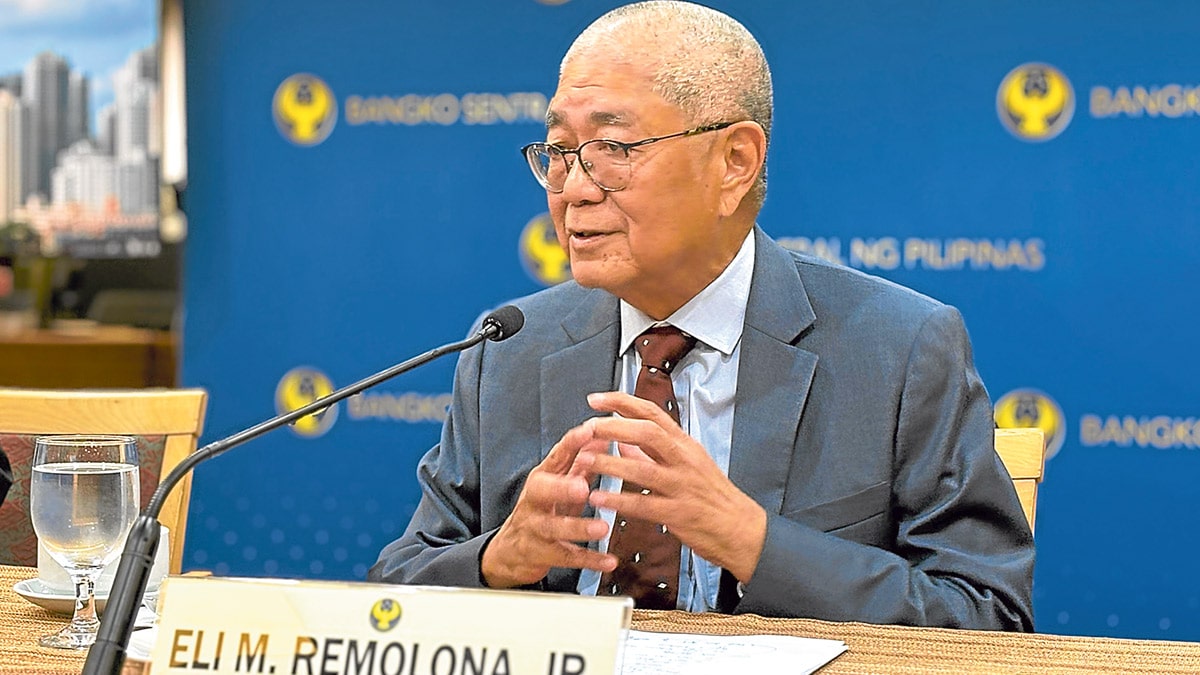Inflation likely spiked to as high as 3 percent this November due to supply problems caused by the onslaught of powerful typhoons and higher energy prices amid a weak peso that could bloat import costs.
This is according to the Bangko Sentral ng Pilipinas (BSP), which projected on Friday that inflation, as measured by the increase in the consumer price index, might have settled between 2.2 percent and 3 percent this month.
If the upper end of the forecast range comes to pass, the headline figure that the Philippine Statistics Authority will report on Dec. 5 would be higher than the 2.3-percent consumer price growth recorded in October.
But the BSP, which is led by Governor Eli Remolona Jr., suggested that inflation would nevertheless stay within the target range of 2 to 4 percent.
Explaining its forecast, the central bank said unfavorable weather conditions might have created food supply problems, thus increasing the prices of key consumer items like vegetables, fish and meat.
Based on government estimates, the agriculture sector suffered more than P10 billion in losses due to the series of typhoons that had recently hit the country.
Severe Tropical Storm “Kristine” and Supertyphoon “Leon” accounted for P9.81 billion in damages, based on Department of Agriculture data, mostly affecting rice crops (P5.89 billion) and irrigation systems (P1.75 billion).
Succeeding Typhoons “Nika” and “Ofel” added losses of P248.47 million to the total, with high-value crops (P97.72 million) and rice (P49.08 million) accounting for most of the devastation.
Weak peso
Meanwhile, a volatile peso that had revisited the record-low level of 59:$1 twice this month was also a “primary” source of upward price pressures, the BSP said.
Latest estimates from the central bank showed the pass-through effect on inflation at 0.036 percentage points per 1-percent depreciation of the local currency. According to the BSP, electricity rates and oil prices—which can be sensitive to movements of the local currency—also went up in November.
But the central bank said all these inflation pressures were expected to be partly offset by lower prices of rice.
“Going forward, the Monetary Board will continue to take a measured approach in ensuring price stability conducive to balanced and sustainable growth of the economy and employment,” the BSP said.
On track with 6-7% growth
Despite the expected jump in inflation this month, Remolona had said the central bank would stay in its easing cycle, although he floated the possibility of a rate cut pause in December amid “persistent” price pressures.
Speaking to reporters on Friday, Secretary Arsenio Balisacan of the National Economic and Development Authority said lower interest rates and a manageable inflation would help the economy clock in faster growth in the final quarter of 2024 versus the tepid 5.2-percent expansion in the preceding three months.
Those tailwinds, Balisacan said, would cushion the possible drag from agriculture, which may post negative growth this quarter because of the typhoon damage.
“We remain optimistic about the fourth-quarter economic performance. Holiday spending, more stable commodity prices and a robust remittance inflow and labor market give us confidence that our 6 to 7 percent growth target is still achievable,” he said. INQ
